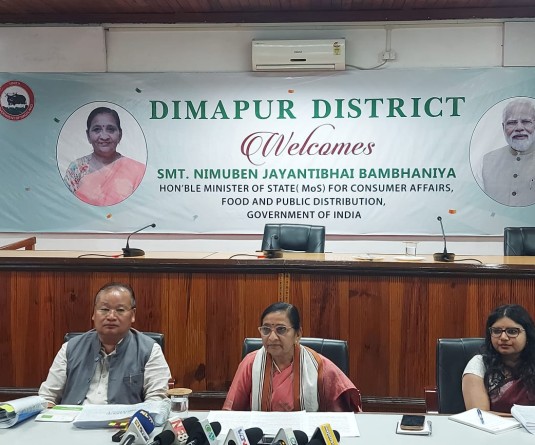
DIMAPUR, SEPTEMBER 3 (MExN); The Against Corruption and Unabated Taxation (ACAUT) Nagaland has voiced concerns over the Nagaland Liquor Total Prohibition (NLTP) Act, urging the government to either repeal it or at least lift the prohibition in towns bordering Assam. According to a press release from ACAUT, the prohibition has led to widespread corruption and fostered a mafia culture, while failing to address the intended social issues.
ACAUT emphasized that while pressure groups may express their opinions on the matter, the final decision should rest with the government of the day. The organization stressed that the government must not bow to external pressures and should take a clear stance on whether to continue with the prohibition. They urged the government to dispel suspicions that a few individuals within the administration are influencing the continuation of the NLTP Act for personal gains.
The organization said that a majority of Nagas support lifting the prohibition, citing its lack of practical implementation as a key reason. They argued that the act has failed to achieve its objectives and has instead caused more harm to society. One of the primary concerns raised by ACAUT is the corruption within law enforcement agencies, which has worsened under the prohibition, leading to the creation of criminal networks that operate in towns and villages across the state.
In terms of practical management, ACAUT argued that legal, regulated alcohol sales would be easier to control than the current underground market, which exists in almost every neighborhood. The press release highlighted that the issue of alcoholism and addiction has persisted with or without prohibition. Rather than maintaining an unworkable ban, the organization proposed that the government should allocate a portion of the revenue from alcohol sales to fund detox and counseling centers for those struggling with addiction.
Addressing the religious and moral arguments often presented in favor of prohibition, ACAUT dismissed them as lacking biblical foundations. They argued that while the moral stance against alcohol may be well-intentioned, it is based more on personal emotions than on practical solutions to the problem.
ACAUT further criticized the belief that the NLTP Act could succeed with more commitment from the government. They described this view as “wishful and fatalistic optimism,” pointing out that the government does not have the necessary resources or manpower to effectively enforce the prohibition. The organization compared the situation to extreme measures taken in some Islamic countries, where prohibition is enforced through harsh penalties, including death, and noted that Nagaland would never succeed in imposing such a system.
Another pressing concern raised by ACAUT was the health risks posed by unregulated alcohol. The organization highlighted the increasing number of early deaths caused by the consumption of spurious alcohol, particularly among younger individuals.
While acknowledging that the regulation of alcohol sales would not completely eliminate these risks, ACAUT argued that a legal and controlled market would significantly reduce the availability of dangerous, unregulated alcohol.
ACAUT emphasized that the majority of people who consume alcohol are not alcoholics and argued it would be unfair to deprive responsible drinkers of their quality of life because of a few who misuse alcohol. The organization stated that the evidence gathered over the past three and a half decades clearly shows that the prohibition is not enforceable and has had damaging effects on society.
It called on the state government to either repeal the NLTP Act entirely or, at the very least, lift the prohibition in border towns. They reiterated that the act is not only unmanageable but also detrimental to the moral fabric and health of Naga society.





